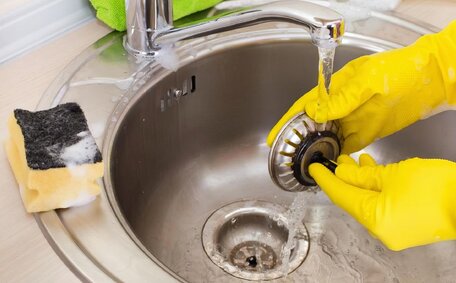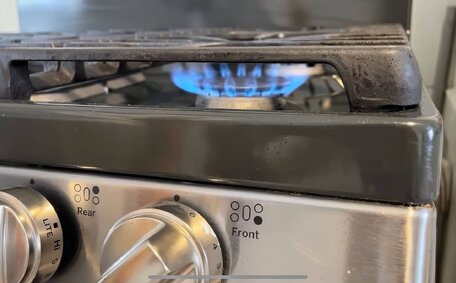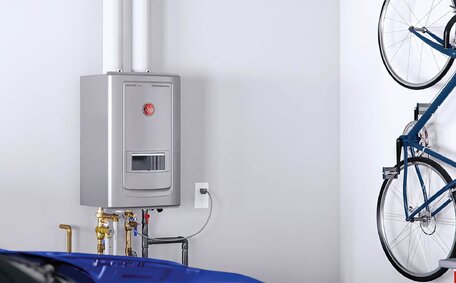What is a Gas Safety Certificate?
A Gas Safety Certificate is a mandatory document confirming that gas appliances, pipework, and flues meet safety standards, issued post-inspection by a Gas Safe registered engineer. This certificate ensures gas installations comply with safety regulations and are safe to operate.
Landlords must obtain a Gas Safety Certificate annually for all property gas appliances, as mandated by law and can only be issued by a Gas Safe registered engineer. They must ensure all gas appliances and flues undergo an annual gas safety check by an engineer on the gas safe register, followed by issuing a valid gas safety certificate to tenants.
Homeowners also benefit from obtaining a Gas Safety Certificate, even though it’s not a legislated necessity. It assures homeowners that their gas is securely connected, preventing risks like leaks, explosions, or carbon monoxide exposure.
During the inspection, the gas fitters will focus on elements of new gas installations:
- Verify each gas appliance installation is safe and compliant
- Assess appliance flue integrity and ensure ventilation routes out gas effectively
- Test pipes and connections for what gas issues may exist
- Ensure appliances are operating efficiently
If any safety defects are identified, the engineer is required to disconnect the affected gas components until they comply with New South Wales gas safety standards.
Once all standards are met following the final inspection, your gas safety engineer will issue a gas compliance certificate, confirming safe operation of gas installations and appliances.
Why Gas Safety Certificates are Legally Required
Regulations require landlords to ensure their gas installations are compliant, requiring Gas Safety Certificates to safeguard all occupants.
Landlords are required to give tenants the gas safety document within 28 working days post-inspection. Certificates, akin to what gas safety standards dictate in the UK’s safety certificate CP12, are valid for one year, necessitating renewal through the gas safety record process.
There are substantial penalties for non-compliance. Landlords can face fines of up to 6,000 per appliance if they fail to maintain a current annual gas safety installation use record or supply the proper documentation. In extreme cases where tenants are seriously harmed due to gas safety breaches, landlords may even face imprisonment.
The regulations aim to ensure more than health safety by preventing exposure to hazards from faulty systems, certifying only those with a valid gas certificate. Such certificates not only keep the property safe but also affirm standard compliance, protecting the interests of both renters and landlords.
Homeowners, while not legally obligated, might consider the cost of a voluntary safety inspection to obtain a current Gas Safety Certificate for property transactions. It acts as proof that gas systems are compliant, often a requirement for conveyancers. It also safeguards future owners against liability for undisclosed problems.
Qualifications Needed to Issue a Gas Safety Certificate
In Australia, only licensed gas fitters are authorised to issue official Gas Safety Certificates for installations. While requirements for gas certification vary by state, with NSW’s safety guidelines providing specifics, a general overview includes:
- In NSW, a gas fitter must hold a gas work licence from Fair Trading and be authorised to do the type of gasfitting work required, as stipulated in the guide gas regulations.
- In Sydney, Pennant Hills and adjacent areas, technicians require expertise in certain gas works, often verified by membership in professional bodies such as the Master Plumbers Association.
Qualified professionals will ensure you are fully informed about gas safety, covering:
- Check credentials and licences to ensure the gas installation is safe.
- Inspect appliances, pipework and flues.
- Conduct safety checks and testing for leaks.
- Verify correct operation and efficiency.
- Ensure ventilation, positioning and clearances meet standards.
- Issue a dated compliance certificate if all requirements are satisfied.
Homeowners can find out what gas compliance measures technicians are certified to carry out before permitting them to inspect all home gas systems or issue certifications.
Adhering to qualifications requirements protects residents while integrating into the connected gas network with safety and compliance.
Conducting a Thorough Gas Safety Inspection
A gas fitting professional will conduct a detailed inspection of your entire gas system, including appliances, pipework, and flues during a comprehensive safety check. This ensures that every component of your home’s gas system is secure and functioning efficiently.
The inspection process scrutinising your appliance includes:
- Checking all appliances are installed correctly and safely.
- Assessing that flues and ventilation meet legal requirements.
- Using detection equipment to test all gas pipework and connections for leaks.
- Confirming appliances ignite, burn and shut off properly when activated.
- Evaluating that safety controls, valves and mechanisms function as intended.
Thorough testing and examination minimises the risk of fires, explosions and life-threatening carbon monoxide leaks. It also ensures optimal energy efficiency compared to any other measures.
Once all safety regulations and performance standards are confirmed to be met, professionals will issue dated gas compliance certificates documenting the inspection findings.
Regular comprehensive safety checks secure your holding’s property gas safety record, confirming legal and safe operation of your gas appliances.
Mitigating Risks of Faulty Gas Appliances
Faulty gas appliances can lead to significant safety hazards, such as gas leaks, explosions, fires, and carbon monoxide poisoning. That’s why regular checks indicating does gas safety compliance are so important.
Older appliances are more prone to faults and should be prioritised for inspection; consequently, homeowners are advised to check gas appliances regularly with gas safe approved maintenance. Even newer appliances can develop faults, emphasising the importance of regular maintenance, given that all equipment experiences wear over time. All gas systems degrade with use.
During comprehensive annual safety inspections, gas engineers identify and address potential hazards before they pose serious risks. This might involve:
- Repairing leaks
- Replacing worn parts
- Adjusting fittings
- Updating appliances
- Improving ventilation for appliances like hot water systems
For optimal safety, gas appliances should receive dedicated service more frequently, with some experts suggesting biannual checks. This prevents minor issues escalating into major hazards.
Though not compulsory for homeowners, regular professional inspections offer assurance that their systems are operating safely. And when you secure your gas safety certificate, it will also validate that everything meets the highest compliance standards.
Meeting Compliance Obligations for Rental Properties
Landlords throughout NSW, including in Pennant Hills and Sydney, have clear legal obligations to undertake gas safety checks in their rental properties.
Under the NSW Residential Tenancies Act 2010, landlords must adhere to landlord gas safety rules, ensuring safety for all gas appliances on the property and flues. This necessitates an annual check where a gas engineer verifies the gas installations’ safety in rental properties.
Under legislation, landlords must ensure annual gas certificates are issued:
- Arrange a certificate inspection for gas safety on any gas appliances and pipework annually.
- Guarantee that any identified defects have the appropriate carried out gas repairs or enhancements.
- Provide your tenants with an updated certificate within 14 days of does gas safety check annually.
These safe register-obligated actions aim to be sure your renters are shielded from risks including fires, leaks, explosions and carbon monoxide poisoning.
If landlords fail to meet requirements, tenants can lodge complaints with NSW Fair Trading or take the matter to the NSW Civil and Administrative Tribunal.
Non-compliance can result in fines up to $22,000 or legal action, with stricter penalties enforced when negligence causes harm.
Routine maintenance, similar to New Zealand’s practices, ensures the safe, efficient functioning of rental properties in compliance with legal gas use standards. Annual checks and certification should be a key priority for investment property owners.
Why Regular Gas Safety Checks Matter
Professional gas safety inspections are crucial for the wellbeing of gas-fitted appliances, extending beyond rental properties to include all homes. Over time, wear and tear can cause gas appliances and pipework to develop minor faults unnoticed, potentially escalating into hazards such as leaks, explosions, or carbon monoxide poisoning.
By arranging annual checks, homeowners can identify and address problems early before they pose a serious risk to households. Annual gas servicing and safety checks are also instrumental in maximising energy efficiency and extending the lifespan of the system.
To align your home’s installations with the top standards of the gas industry, contact the qualified professionals at Pennant Hills Plumbing. Our licenced experts can conduct thorough gas safety checks and provide updated safety certification for your records.






